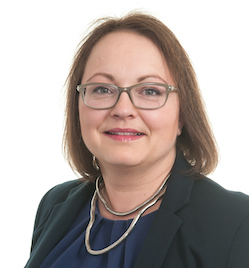Channels
Special Offers & Promotions
Scaling CROs capabilities with smart finance

Sally-Anne Whybrow, Healthcare Business Development Manager, Siemens Financial Services, UK explains why CROs are turning to smart finance solutions from specialist financiers.
For more than twenty years the trend of outsourcing R&D activities in the pharmaceutical industry has been gaining traction. Driven by the need for continued innovation, outsourcing to a Contract Research Organisation (CRO) has now become a mainstay for pharmaceutical, biotechnology and biomed companies of all sizes. However, this outsourcing relationship often raises financing and cash-flow challenges for CROs as they see through the drug delivery process across the various phases of the journey from pre-clinical and clinical research to trial management and pharmacovigilance. On the one hand, large pharmaceutical companies require a CRO to be self-sufficient managing the entire drug development process. On the other, small and emerging biotech often need the support of smart financing resources and infrastructure to fuel sustainable growth.
Further pressures are also affecting the need for CROs to acquire the medical technology they require, at scale and at speed. Overall, the growth in the CRO market in the UK and beyond is driven by the accelerated research practices linked to COVID-19 response as well as the need to develop new medicines to treat and fight the increasing prevalence of chronic diseases and conditions.
Across the board, research activities and clinical trials relating to chronic diseases and conditions were halted or delayed as researchers devoted their expertise and attention to the pressing need for a defence against COVID-19. The industry was forced to respond to the twin challenges of restrictions on performing clinical trials – due to social distancing measures – and the very urgent need to deliver yet more trials, more efficiently than ever, for the development of a COVID vaccine. As such, the pandemic has not only affected the number of trials conducted but equally the way clinical trials are now designed and delivered. Faced with this contradictory challenge alongside the disruption of all related processes (planning, feasibility, design, protocol, execution), CROs have been forced to rethink and reshape approaches.
The result is an increase in hybrid models where traditional clinics operate in parallel with decentralised trials and environments. Quite simply, hybrid clinical trials and remote patient monitoring have enabled uninterrupted trials during the sequential lockdowns and changing restrictions as well as cost savings of 15-20%. This more digital approach to the clinical process therefore presents significant growth prospects for the CRO market.
And while the CRO market suffered disruption as a result of the pandemic, recovery is expected to be swift. This means CROs of all sizes but especially those in the development stage need to rapidly scale their offering to respond to both the backlog of R&D work delayed by the pandemic and the now elevated standards for solution delivery driven by the rapid vaccine response.
As a result, the pace of future research is now expected to be higher with tighter deadlines where CROs are required to react with total flexibility. This can only be achieved with access to digital ready and high-end clinical chemistry equipment such as high-resolution mass spectrometers that can simultaneously quantify thousands of samples enhancing precision, depth, and throughput; flexible, scalable, automation-ready immunoassay and chemistry analyzers including PCR machines; state-of-the-art centrifuge models to meet growing volume and turnaround requirements; and chemical reactors with programmable software and data logging capabilities. As technological capabilities advance, projects are now being designed around the ability to easily scale up and down at different stages. Smart automation software is facilitating seamless scheduling, data collation and sharing as well as improved safety and security measures. Clearly, for research organisations to remain competitive and meet the heightened expectations for seamless drug delivery will necessitate significant investment in both equipment, software and infrastructure.
Many CROs are turning to smart finance to enable sustainable pathways to investment. Smart financing – offered by specialist financiers – enables the acquisition of technology and equipment for competitive advantage, in a way that is financially sustainable and tailored to the organisation’s specific business and cash-flow needs. Smart financing offers three major advantages over generalist finance: technology expertise which understands real business outcomes; a breadth of financing solutions which can meet every organisation’s exact needs; and smooth, sophisticated processes which makes the use of smart finance seamless and easy. Healthcare financiers who have an in-depth understanding of the drug research and development technology and its applications can provide these tailored financing packages. SFS provides cost effective financing solutions for a wide variety of equipment and technology, enabling organisations to acquire the solutions they need without having to commit precious capital budgets.
While COVID has indisputably accelerated the pace of research, it has also had delayed essential research into and clinical trials for other ailments and diseases. For CROs to get processes back on track and meet the heightened demand for their services, significant investment in high-end equipment and technology is required.
For this reason, an increasing number of CROs are turning to smart finance solutions from specialist financiers. Drawing on a deep knowledge of the drug research and development sector, specialist financiers work with the CROs to flex finance periods and terms to align with strategic goals and outcomes.
 Sally-Anne Whybrow, Healthcare Business Development Manager - Siemens Financial Services in the UK
Sally-Anne Whybrow, Healthcare Business Development Manager - Siemens Financial Services in the UK
Sally-Anne Whybrow, Healthcare Business Development Manager: has over 20 years of experience in the financial services industry, with over 15 years specifically in leasing, which puts her in a well-placed position to add real value to businesses and their customers. Sally has a strong customer focus and applies her wealth of knowledge and creativity to provide a professional service to aid her customers’ growth and technological advancement.
Media Partners


